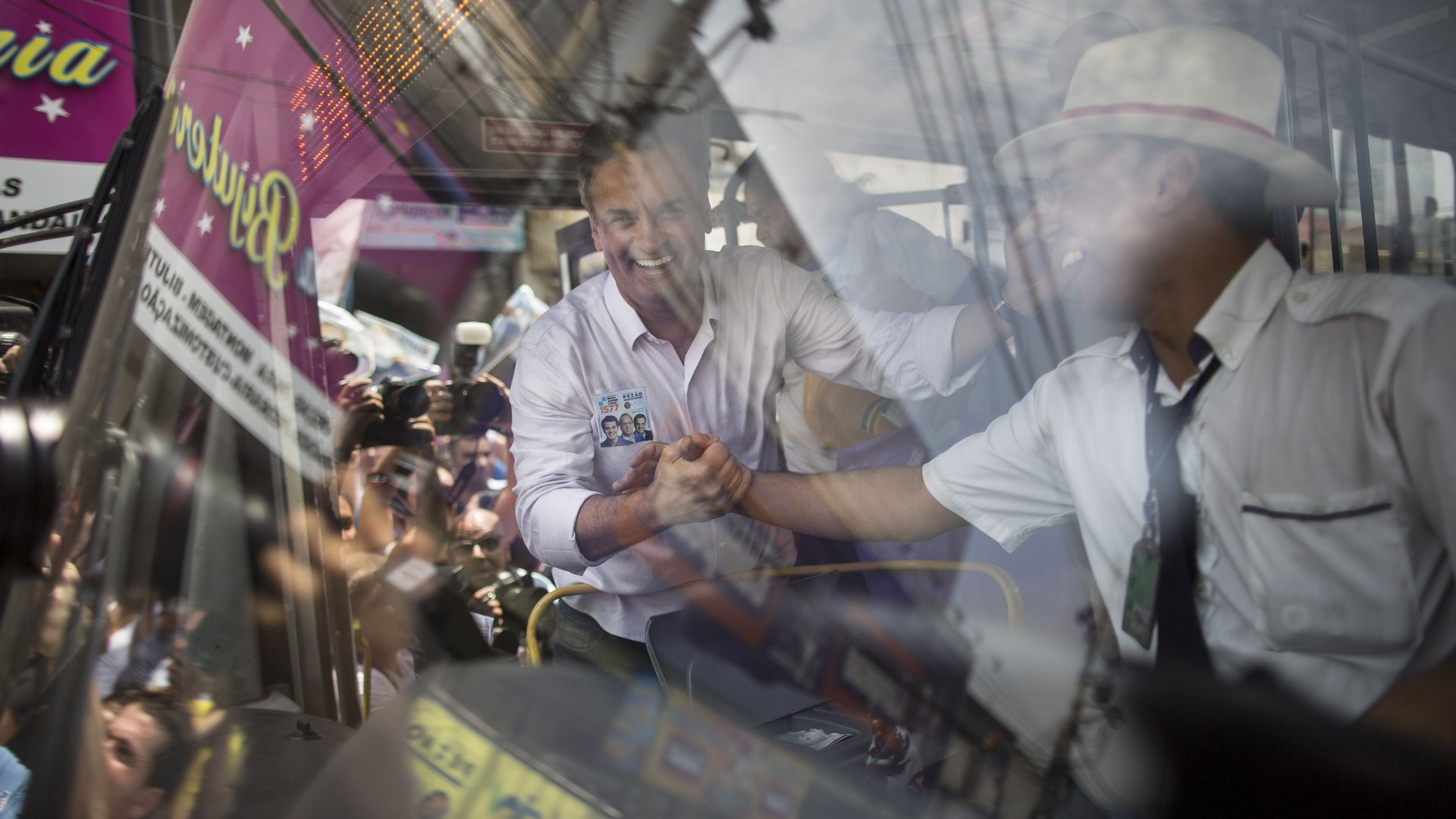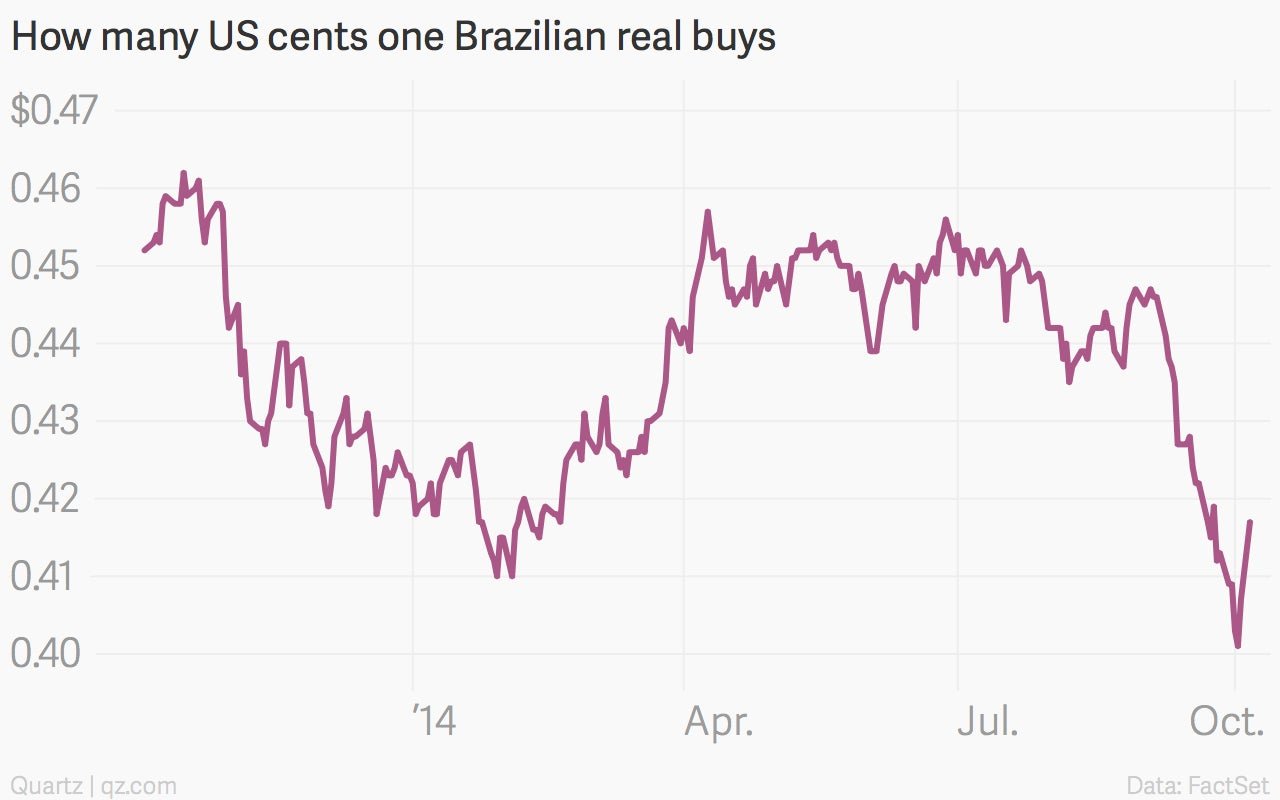Brazil’s markets need to relax, Rousseff isn’t out yet
Financial markets cheered first-round results of Brazil’s presidential election, but the fate of the country’s economy, which entered recession in the second quarter, remains uncertain.


Financial markets cheered first-round results of Brazil’s presidential election, but the fate of the country’s economy, which entered recession in the second quarter, remains uncertain.
The results of Sunday’s vote mean that incumbent Dilma Rousseff will face off against the pro-business senator Aecio Neves in a runoff slated for October 26. Rousseff garnered 42% of votes cast, followed by Neves, who had 34%. Neves’ better-than-expected performance helped lift Brazil’s real the most since August 2013 Monday. Brazil’s equity markets also surged.

Still, Neves—who has touted his ability to restore economic growth—faces an uphill battle in the second-round matchup. He must win support from voters who sided with Marina Silva, a socialist candidate who trailed Rousseff and Neves with 21% of votes in the first round of the election.
“A problem Neves faces is the ability of Dilma’s campaign to portray him as a rich playboy, out of touch with the needs of the average Brazilian,” writes Craig Botham, an analyst with Schroders, in a research note. “This makes it doubtful whether Silva supporters will automatically transfer their support.”
The market reaction to the prospect of political change comes amid economic sluggishness and popular discontent over rising living costs and what critics say has been misplaced spending priorities. But the reactions of investors might be overly optimistic about the true prospects for a change. “It remains to be seen whether Marina will formally endorse Neves,” adds Botham. “Without this, it is difficult to foresee his victory.”